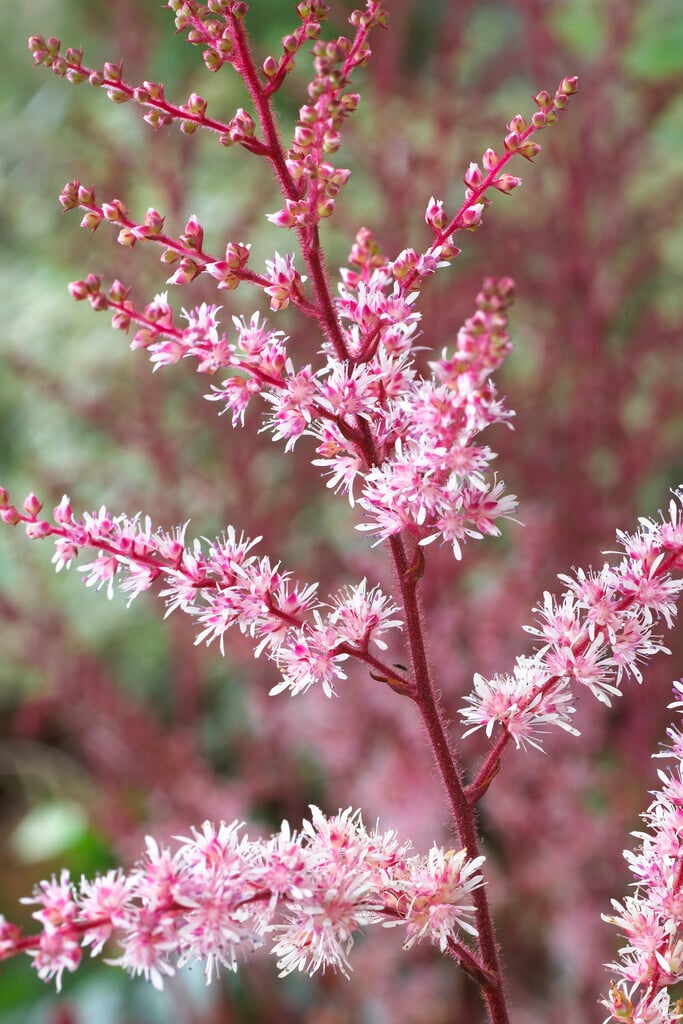Astilbe 'Delft Lace'
astilbe 'Delft Lace'
Clump-forming perennial about 60-90cm tall, with finely toothed, deeply divided, dark green lacy leaves, flushed purple in spring. Red stems carry tall, upright, feathery flower plumes of pale apricot pink with accents of dark salmon, that open from pink buds in late summer
Size
Ultimate height
0.5–1 metresTime to ultimate height
2–5 yearsUltimate spread
0.1–0.5 metresGrowing conditions
Moisture
Moist but well–drainedpH
Acid, Alkaline, NeutralColour & scent
| Stem | Flower | Foliage | Fruit | |
| Spring | Red | Green Purple | ||
|---|---|---|---|---|
| Summer | Red | Orange Pink | Green Purple | |
| Autumn | Green Purple | |||
| Winter |
Position
- Partial shade
Aspect
East–facing or West–facing or North–facing
Exposure
Sheltered Hardiness
H7Botanical details
- Family
- Saxifragaceae
- Native to GB / Ireland
- No
- Foliage
- Deciduous
- Habit
- Clump forming
- Genus
Astilbe are rhizomatous herbaceous perennials with attractive, usually ternately divided leaves and erect plume-like panicles of tiny white, pink or purple flowers in summer. The old, brown flower-heads remain attractive in autumn
- Name status
Accepted
How to grow
Cultivation
Grow in moist but well-drained or boggy soil in dappled shade, or in indirect sun where the soil remains moisture-retentive in summer. Drought intolerant, may be affected by leaf scorch in hot sun. Good for waterside planting. See Astilbe cultivation
Propagation
Propagate by division, divide overcrowded clumps every three to four years and discard older rhizomes to maintain vigour.
Suggested planting locations and garden types
- Cottage and informal garden
- City and courtyard gardens
- Patio and container plants
- Flower borders and beds
Pruning
Plumes flower once and gradually fade over several weeks. Remove spent flowers stalks to improve appearance or leave in place to dry for ornamental interest
Pests
May be susceptible to vine weevil
Diseases
May be susceptible to powdery mildews
Get involved
The RHS is the UK’s gardening charity, helping people and plants to grow - nurturing a healthier, happier world, one person and one plant at a time.
